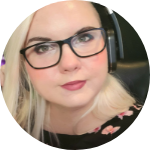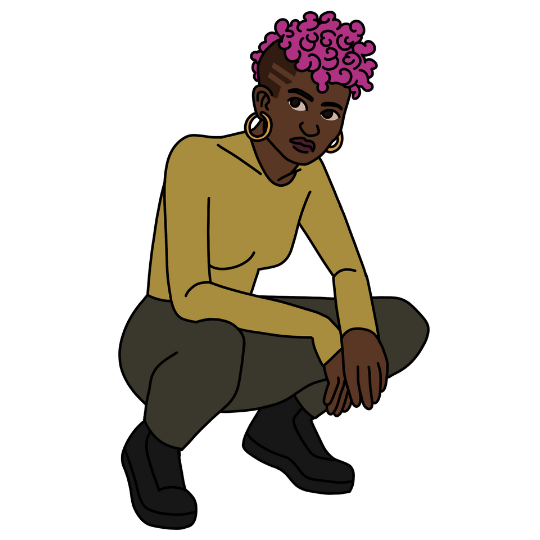Hub World – Representation
Posted: 14 Jul 2021Welcome back to Hub World!
In June, we spent time reflecting on the theme of representation. As people, we naturally look for representation – people and stories that connect with us on a personal level. As an industry, we still have a way to go in ensuring a diverse range of voices are heard, but we continue to see many brave individuals and communities pushing for change.
This month, we will get straight into the stories from the SIOW community and what representation means to them.

Suneet Sharma

Sometimes my British Indian heritage and society’s heteronormativeness makes my gay identity sometimes feel stifled. These clashes of culture make it easy to withdraw and want to hide my sexual orientation, thus playing into societal stereotypes of LGBTQ+ people of colour.
Opening up about this uneasiness has let me reclaim my identity and celebrate who I am. Persona 4’s depiction of Kanji’s Tatsumi struggling to accept his sexuality, represented through a fight with his inner shadow really struck chords with me.
The depiction is controversial. But most importantly it’s there. A faithful depiction of a LGBTQ+ character. Not just queer coding. So to me that’s the most important thing- games telling these stories in an authentic way.
Mel Plays Games

I’m a bisexual retro streamer on twitch. I also struggle with depression, anxiety, and chronic pains.
Being a Bisexual there is a lot of odd stigmas that pressure us. I have, as probably many before me get those odd “but you cant be a bisexual if you are only dating men” or “Bisexuals are always 50/50 of who they are attracted to”, this only serves to amplify stereotypes. It was hard for me to come out as Bisexual but even harder when I mention I’ve only dated cis men, it seemed then that I wasn’t Bisexual enough in some lgbtq+ communities.
Bisexuals experience high rates of being ignored or rendered invisible in the community. I felt left out and it had a negative effect on my health.
Finding a community that fosters a safer place for you to feel welcome has helped me feel more comfortable, I sat in a discord group once and listen to all the stories people talk about being bisexual and the stigma they go through every day, they gave me some helpful articles surrounding bisexual stigmas and now I know I’m not left out, it’s ok to be more attractive to men and still love women or vise versa, you still bisexual despite what you prefer to love the most.
Night in the Woods is a game I really felt connected to, the main character Mae especially, the whole game has a great understanding of going through emotional trauma and gives a good representation of mental health. Mae is dealing with depression and anger issues and trying to repress the feelings she is having, she’s a bit misunderstood but as you go along you see her more compassionate side. I love that about her, it reminds me of me growing up. It was a good escape to play through the story, made me feel ok with what I was going through myself, I felt at peace. If you haven’t tried the game out, I highly recommend you do.
Karen Lee

I used to spend much of my time in MMOs such as Runescape and World of Warcraft. Being a Canadian-born Chinese who moved to Hong Kong for much of my high school life, online games allowed me to connect back with my North American upbringing with like-minded folks. I mainly played from Hong Kong—meaning I’d stay up late at night so I could properly sync up my playtime with North American servers.
I truly felt that I belonged in these games, despite feeling different from my peers in Hong Kong. There was no judgement based on age, race, geographical location, or gender. We focused on the game and that was it.
I continue to love online multiplayer games. I’m overjoyed that I’m now seeing characters that align with my actual Chinese Canadian heritage! Frost from Rainbow Six Siege is an immediate favourite that comes to mind. However, I’m eager to see even more video game characters and stories develop around the unique culture of Asian-Americans in the future!
Richard Lee Breslin

Representation comes all in forms. It could be skin colour, upbringing, sexuality, disability, mental wellbeing, and more. In one way or another, whatever our background, representation can be an important aspect of our mental health.
Other than being physically disabled, I’m an adult with autism and up until recently, I was scared to talk about my autism. I was concerned with how society might judge me, even some of my family and friends. However, with the help of social media, I learned that I’m not alone.
There are loads of people like me from all backgrounds who are on the autistic spectrum. Autism is a different experience for each individual. But the one thing that connects us all on social media, is that none of us are alone, and we’re all ‘ausome’ 😉”

Emma Withington is a freelance writer and Senior PR at Bastion who has worked on campaigns for a variety of titles, including Control and Final Fantasy XIV: Online.
She is currently spending time focusing on the wider community and how she can help others through her personal journey with mental health.

